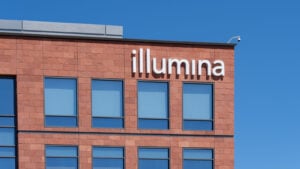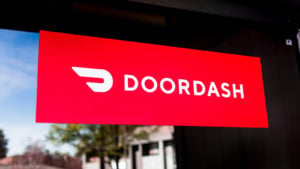The stock market has been in a solid rally since the third quarter of 2023, pushing significant indices to new highs. That upward trajectory also raised company valuations for many stocks, putting investors at risk of inflated stock prices and selloffs. Being the most traded exchange in the states, the Nasdaq is no stranger to seeing expensive stocks that investors should sell.
These expensive stocks show signs of decline or have recently seen explosive price growth that lacks fundamental support. Indeed, expensive stocks are quite common in bull markets. It may sound like fearmongering, but investors should constantly evaluate their picks and be wary of “returning” their gains to the market.
Unfortunately, the following stocks have fallen into the expensive category. It may be worth dumping these expensive Nasdaq stocks to sell before their prices fall back to earth.
MongoDB (MDB)

MongoDB (NASDAQ:MDB) offers a new management platform that overcomes the traditional relational database and is useful for large distributed data sets. Its platform can manage document-oriented information and retrieve information using its architecture, which comprises collections and documents that allow users to build schema-less databases at scale.
While MongoDB offers a modern approach to legacy database infrastructure customers, how to make them transition to its platform is a question. That generally means it only has a strong growth runway if other competitors like Amazon Web Services catch up and offer similar types of features, lessening its competitive strength.
MongoDB may have been among the strongest stocks since it rallied last year. In terms of financial performance, the company is looking good. Topping the report is its 31% year-over-year (YOY) revenue growth, boosted by increased subscription and service revenues.
However, MongoDB’s fiscal 2025 outlook was disappointing. The company forecasted revenue growth of roughly 15% at the high end. That is significant because MongoDB is still operating at a net loss, which means a slowdown in top-line growth will make it harder to bring its bottom line up to positive territory.
As other competitors continue to catch up with their offerings, MongoDB will be in a tough spot if it can’t try to accelerate growth. Investors should think twice about keeping MongoDB. The stock trades with a -136 forward P/E, and MongoDB is one of the more expensive Nasdaq stocks.
Ilumina (ILMN)

Known for its genome analysis specialty, Illumina (NASDAQ:ILMN) is an advanced medical equipment and technology manufacturer that mainly operates in two main segments:
- Core Illumina: offering products and services for research and application using genomic solutions
- Grail: specializing in early cancer detection
The Grail acquisition has significantly impacted the company’s price performance. Illumina plans to divest Grail after losing the antitrust lawsuit filed by the FTC. The process should be complete by Q2 ’24.
The Grail situation severely impacted the company, and it was fined EUR 432 million for continuing to merge with Grail before the E.U. Commission’s approval.
Meanwhile, Illumina ended its full year with mixed performance. Revenue shrunk by 2% YOY for FY ’23. The company also ended with a GAAP diluted loss per share of $7.34 due to the Grail segment.
The company is currently trading at 147x its earnings and is expecting FY ’24 revenue to remain flat, which spells a potentially stunted growth and an incredibly high valuation. With an expensive valuation and the high-risk impact of its Grail segment, Ilumina now ranks as one of the more expensive Nasdaq stocks to sell.
DoorDash (DASH)

DoorDash (NASDAQ:DASH) is an e-commerce platform that connects restaurants, dashers and consumers into its platform to perform and fulfill orders while customers conveniently skip lines.
While DoorDash offers convenience to its customers’ ordering process, the company operates in a tight market with intense competition from Uber Eats, Lyft (NASDAQ:LYFT) and Grubhub.
Looking closer at its financials, DoorDash reported 27% revenue growth YOY, an all-time high EBITDA and a 23% YOY increase in total orders. Sounds great, right?
Well, despite the performance, I’d look to the company’s net loss of $156 million and a negative $1.43 EPS. Forward PE shows DASH stock to be trading at 673.05x its forward P/E.
Then there’s the issue of reclassifying dashers as full-time employees, making them eligible for overtime pay, minimum wage, health plans and more. These regulations can lower the company’s revenue and increase operational costs if passed.
DoorDash’s lack of free cash flow and relatively short operating history puts it vulnerable to a sell-off. Add to that the regulatory risks and market headwinds make DoorDash one of the more expensive Nasdaq stocks to sell to avoid taking losses.
On the date of publication, Rick Orford did not hold (either directly or indirectly) any positions in the securities mentioned in this article. The opinions expressed in this article are those of the writer, subject to the InvestorPlace.com Publishing Guidelines.

